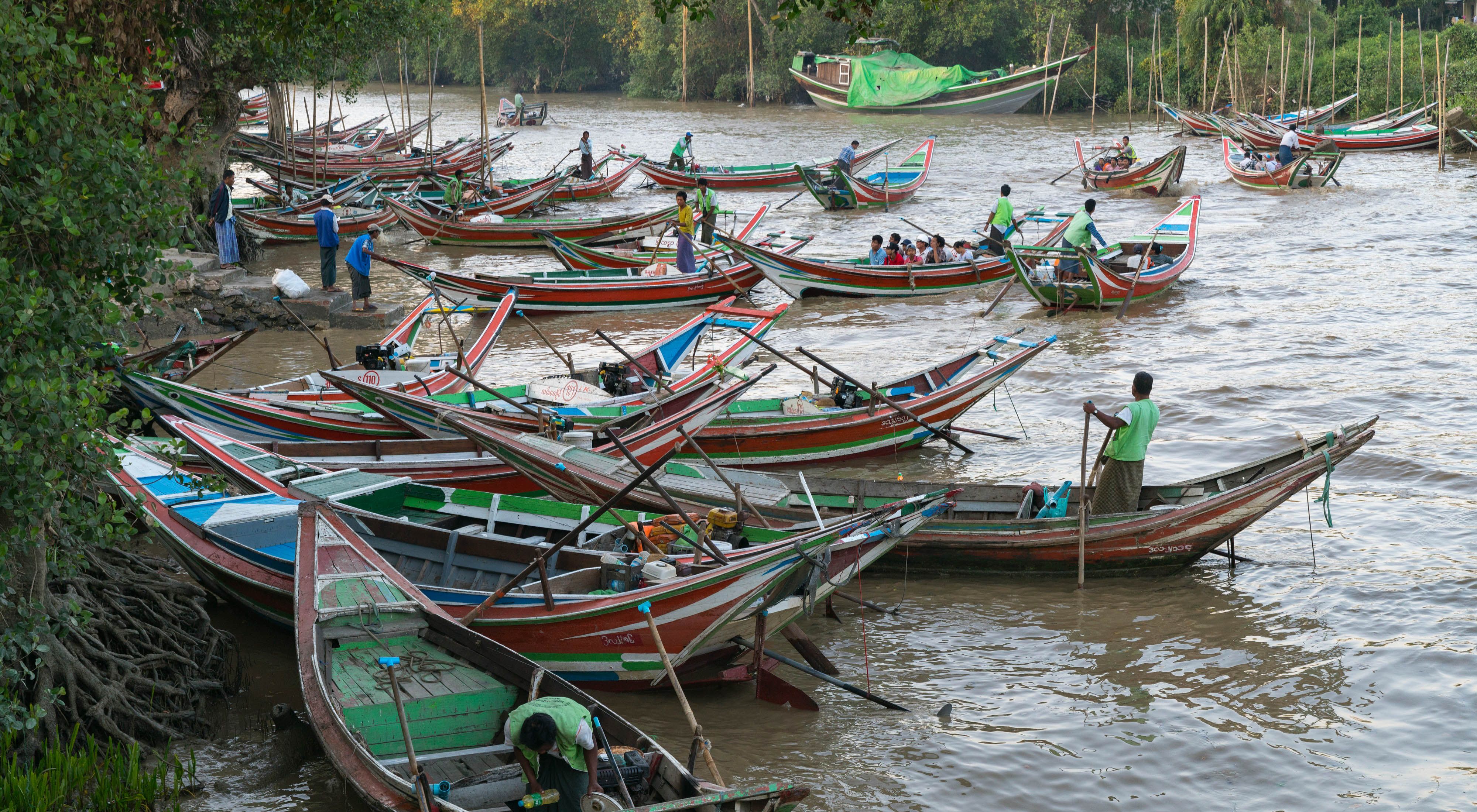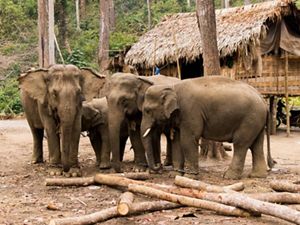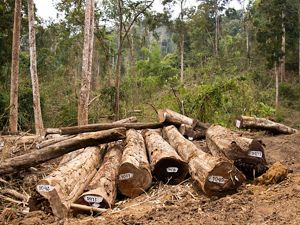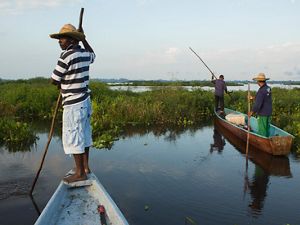Our Work in Myanmar
Myanmar is a global conservation hotspot. The country's forests, freshwater and coastline are rich with biodiversity and the potential to reduce carbon emissions at scale. Learn how TNC is supporting local communities who are working to balance economic growth with the sustainable management of natural resources.
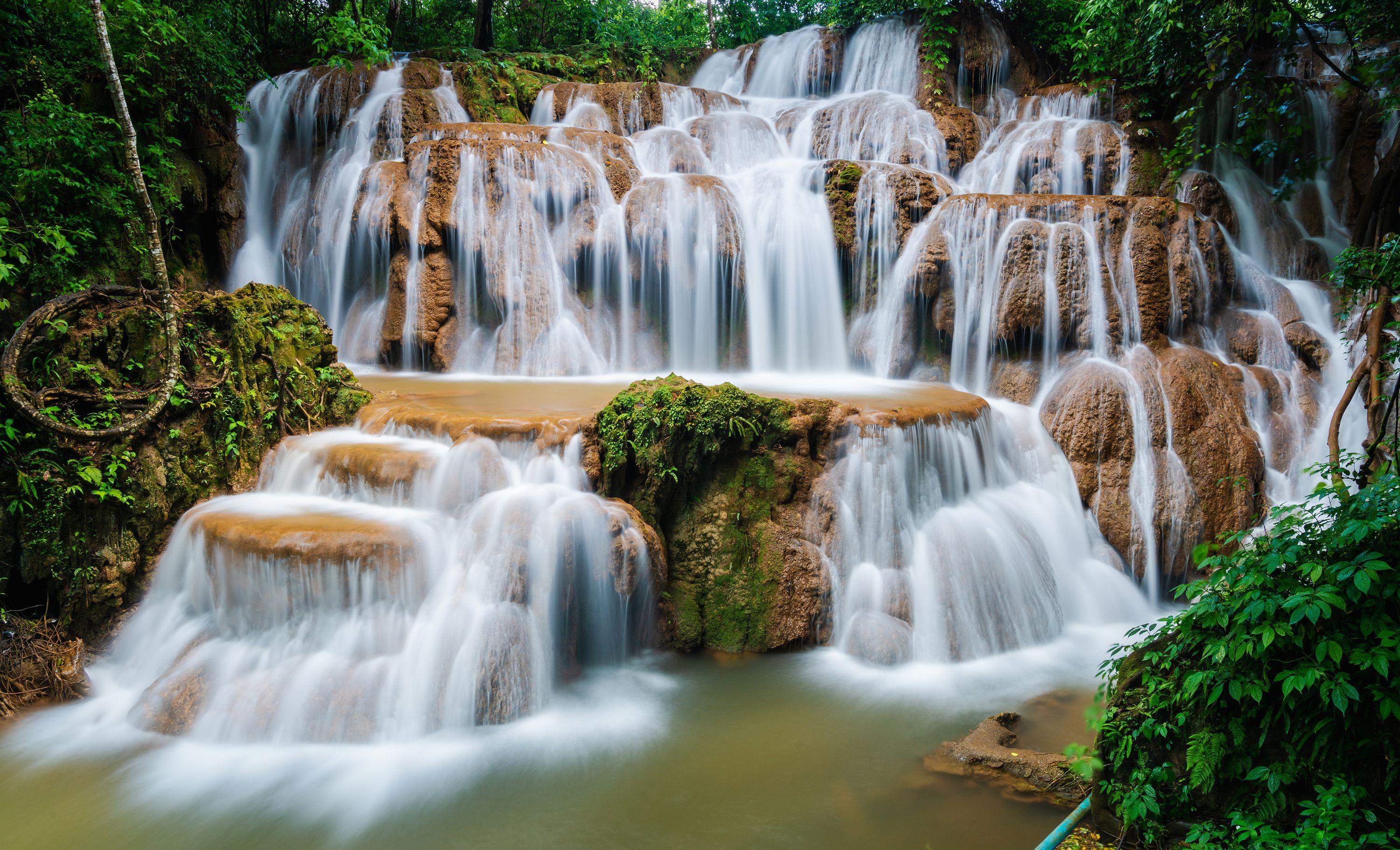
An Update on TNC in Myanmar
What is the current situation in Myanmar?
Since the February 2021 coup, the country has been in turmoil. In response to the military takeover of the government and violence against civilians, activists organized strikes and mass protests. Military forces responded with escalated violence and other repressive tactics to subdue opposition.
A National Unity Government—including ethnic leaders and officials elected in 2020—formed in opposition to the junta. Under this leadership (currently in hiding), the People Defense Forces and Ethnic Armed Organizations have attacked military convoys and junta officials. What started as an organized Civil Disobedience Movement is now essentially a civil war across Myanmar.
What is the status of TNC’s operations in Myanmar?
TNC’s work with national government agencies paused when the coup started. However, we found ways to continue conservation and support our local and civic partners. For example, we provided hardship grants to Elephant Conservation-based Tourism (ECBT) camps—created to protect timber elephants—which have suffered a significant reduction in revenue. The grants cover basic needs like food and medicine for the elephants, the caregivers and their families. We also continue to help ECBT camps develop business plans with basic training in global imaging systems and operations guidance.
Collaboration with other international NGOs is critical, and TNC has joined the World Wildlife Fund, the Wildlife Conservation Society and others in regular country directors’ meetings. We share updates on operational challenges and monitor impacts on important natural areas, supply chains and the wellbeing of people running away from military attacks on their villages.
Are TNC staff safe?
Throughout this time of instability, our first concern has always been the safety of TNC’s Myanmar staff. The junta has been detaining celebrities, wealthy business leaders and other high-profile individuals. They are hostile to international NGOs that have been vocal in their condemnation of the military’s brutal tactics.
However, because TNC is a non-political organization, and because we are not accepting international funding in Myanmar, we are not on the junta’s radar. In-country staff are able to continue working safely through local partners. Staff who have remained are safe and not currently at risk of being targeted by the junta. TNC is closely monitoring the evolving situation and developed a safety and risk management plan for all staff in Myanmar.
Why is TNC staying in Myanmar?
TNC’s presence in Myanmar is a source of stability for the country’s conservationists. We have strong partnerships with civic and local groups, as well as the private sector. We will continue to support their conservation vision and goals with science, guidance and support. Additionally, Myanmar is a global conservation hot spot: its forests, freshwater and oceans are rich with biodiversity and the potential to reduce carbon emissions at a global scale.
How can TNC help the people of Myanmar?
Myanmar’s infrastructure has largely collapsed. People have lost their livelihoods and are struggling to feed their families. They are reverting to the forest for their sustenance, often through unsustainable practices that are destroying this resource that’s incredibly important for their future. Contributing to humanitarian efforts is our top priority, and TNC is figuring out how we can collaborate with other NGOs safely.
An emerging pathway is pairing livelihood creation (jobs) with forest management (conservation) to quickly provide sources of income, rebuild infrastructure and protect forest resources that are important for both Myanmar’s economy and globalscale climate solutions. TNC is hoping to launch the first-ever biodiversity mapping project of Myanmar’s forests. The project will create jobs while rehabilitating forest management systems.
For more information, contact Aura Parks, Director of US Individual & Institutional Giving, Asia Pacific at aura.parks@tnc.org.
